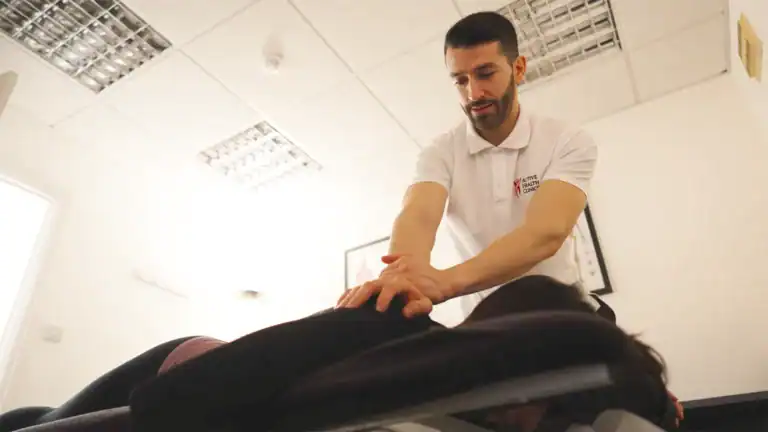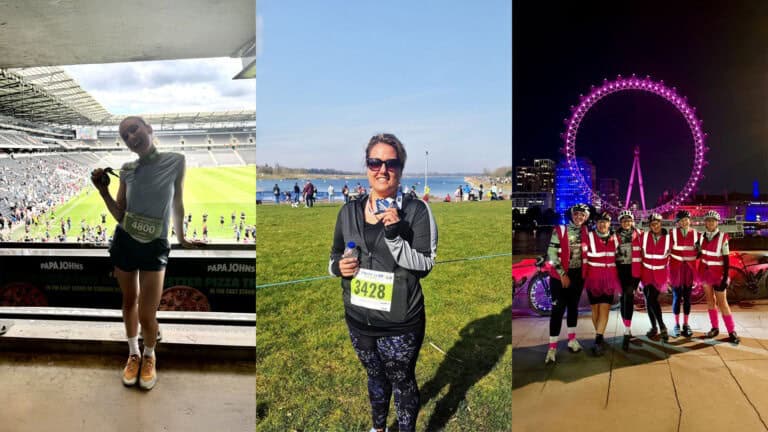Calorie intake is one of the most fundamental aspects of nutrition. Whether your goal is weight loss, muscle gain, or simply maintaining your current weight, understanding how many calories you consume and burn is essential. But how do you determine your daily calorie needs, and what role do different macronutrients play in your total intake?
Let’s break it down.
How to Determine Your Calorie Needs
Many online calculators estimate calorie needs using formulas, but the most accurate way to determine your Resting Metabolic Rate (RMR)—the number of calories your body burns at rest—is through an individual RMR test. This test measures your oxygen consumption and provides precise data on how many calories your body requires for basic functions such as breathing and digestion.
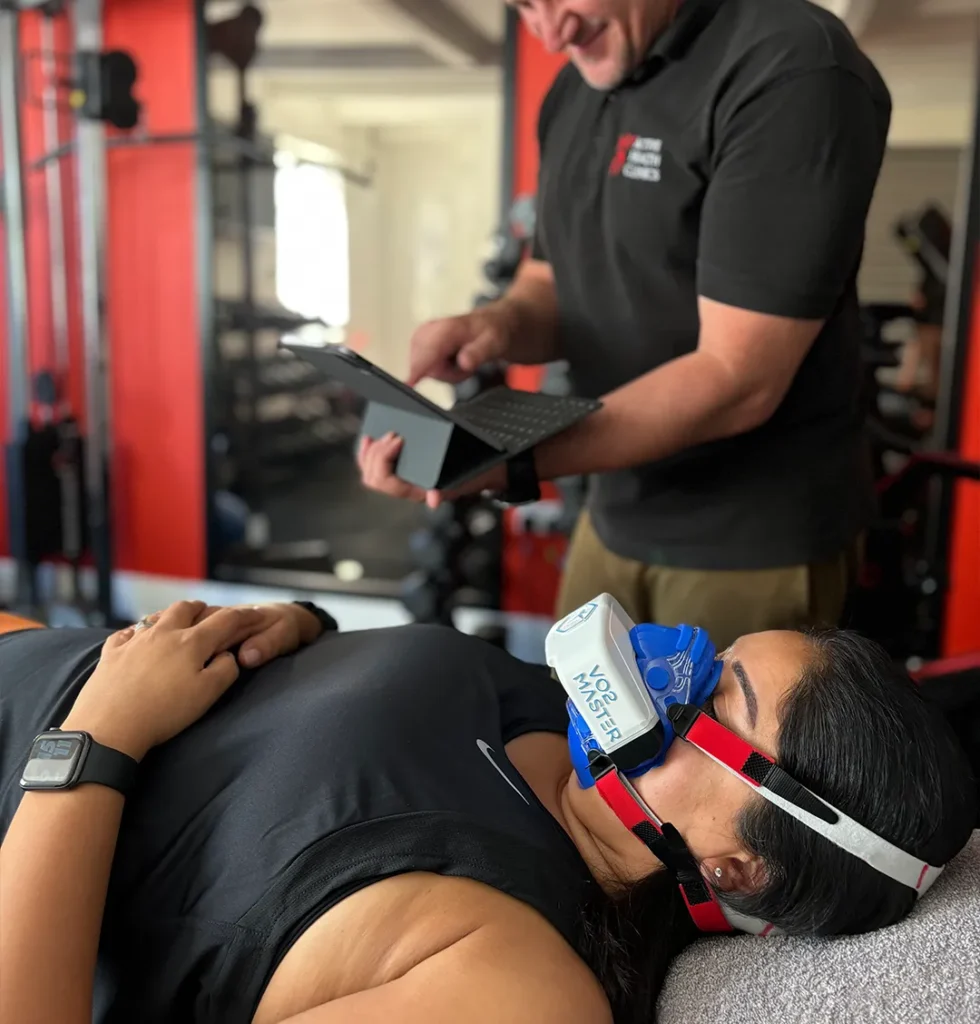
Once you know your RMR, you can factor in your activity level to estimate your Total Daily Energy Expenditure (TDEE)—the total calories you burn in a day. Following the test, we will guide you in the right direction, helping you save time, effort, and money while achieving the best results.
Caloric Value of Macronutrients
Each macronutrient—carbohydrates, proteins, and fats—provides a different amount of energy per gram:
- Carbohydrates: 4 kcal per gram
- Proteins: 4 kcal per gram
- Fats: 9 kcal per gram
- Alcohol: 7 kcal per gram (not a macronutrient, but contributes to total calories)
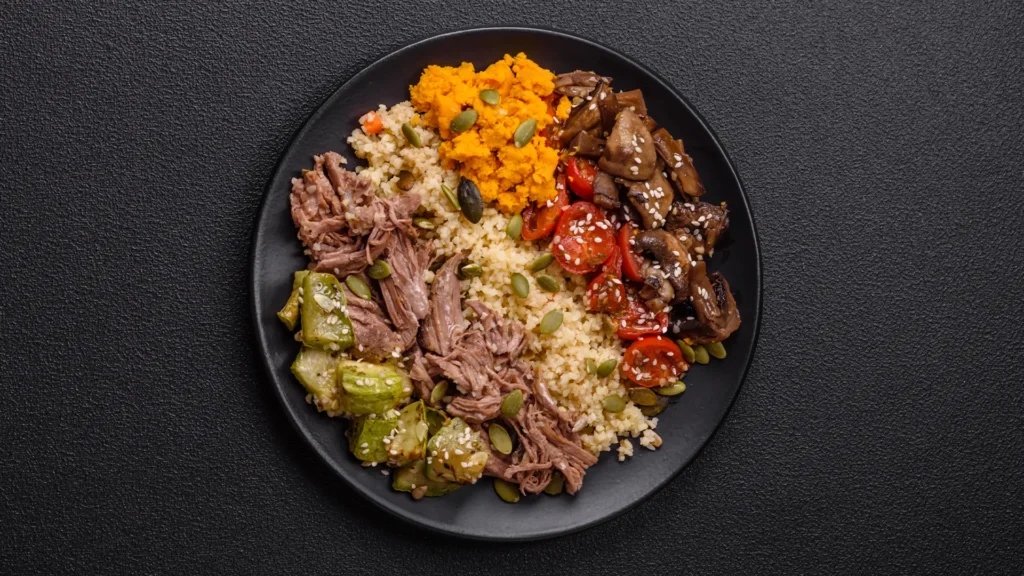
How This Translates to Real Food
Here’s how these calorie values apply to common foods:
Carbohydrates
- 1 slice of bread (~25g): 70–80 kcal
- 1 medium banana (~120g): 105 kcal
- 1 cup of cooked rice (~200g): 200–220 kcal
- 1 tablespoon of sugar (~12g): 48 kcal
Proteins
- 100g of chicken breast: 165 kcal
- 100g of salmon: 208 kcal
- 1 large egg: 70 kcal
- 100g of tofu: 80 kcal
Fats
- 1 tablespoon of olive oil (~14g): 120 kcal
- 100g of almonds: 575 kcal
- 1 tablespoon of peanut butter: 90 kcal
- 100g of avocado: 160 kcal
Putting It All Together
For example, if someone eats:
- 150g of chicken breast (248 kcal)
- 1 cup of cooked rice (210 kcal)
- 1 tablespoon of olive oil (120 kcal)
- 1 cup of steamed broccoli (55 kcal)
This meal provides 633 kcal, balanced across protein, carbohydrates, and fats.
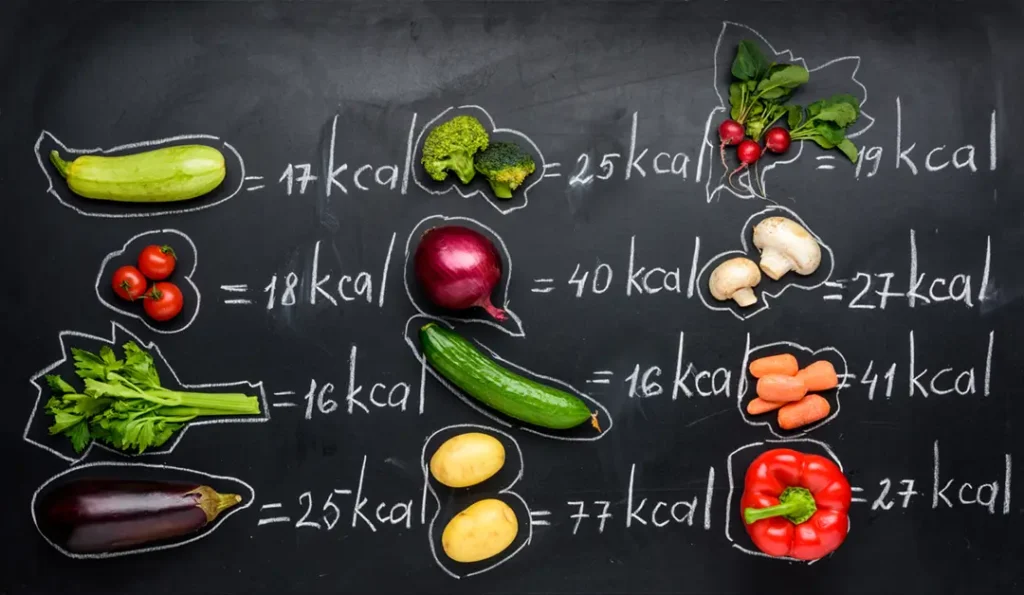
How Many Calories Should You Eat?
While an RMR test provides the most accurate measurement, general estimates suggest:
- Sedentary adults: ~1,800–2,200 kcal/day (women), ~2,200–2,600 kcal/day (men)
- Moderately active adults: ~2,000–2,400 kcal/day (women), ~2,400–2,800 kcal/day (men)
- Highly active adults: ~2,400–3,000+ kcal/day (women), ~2,800–3,500+ kcal/day (men)
For weight loss, a calorie deficit (consuming fewer calories than you burn) is required, whereas for muscle gain, a calorie surplus (consuming more than you burn) is necessary.
Additionally, protein intake is a key factor in body composition management. The optimal amount varies for each person based on body weight, body composition, daily schedule, activity level, and fitness goals.
However, not all calories are equal. Your fitness results also depend on other factors such as body type, body composition, fitness level, hormonal balance, and metabolism.
Final Thoughts
Understanding calorie intake is crucial for achieving your health and fitness goals. Instead of relying on generic formulas, consider an RMR test for the most accurate data. Once you know your energy requirements, you can tailor your diet to suit your lifestyle, ensuring a balance of carbohydrates, proteins, and fats that aligns with your goals. This is the first step towards long-term fitness success.
For the best and most sustainable results, avoid following generic programmes from the internet, magazines, or other people. We are all individuals, and nutrition and training should be tailored accordingly!
Would you like help with an exercise programme and meal plan based on your calorie needs?
Let me know by booking in a complimentary consultation with myself at The Shed in Maidenhead!
